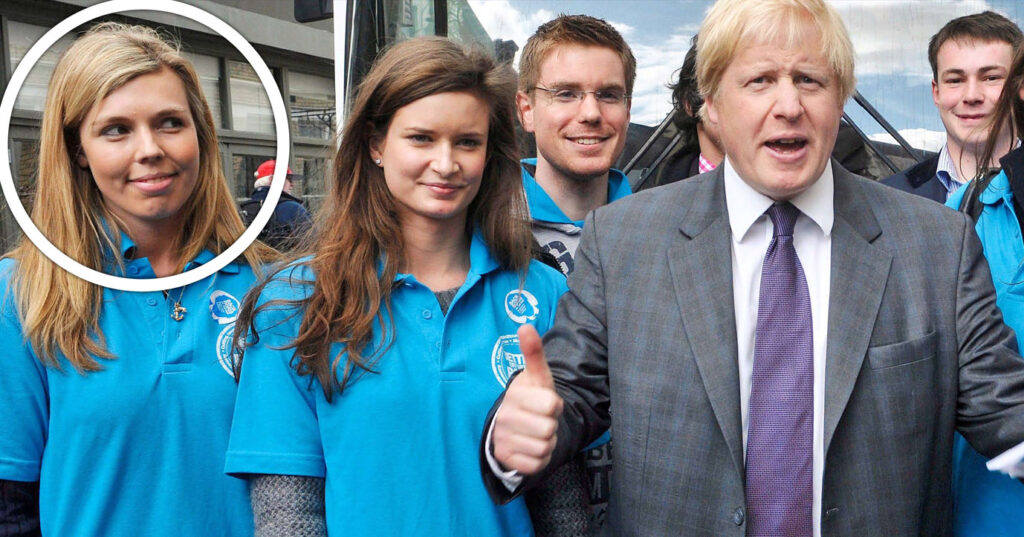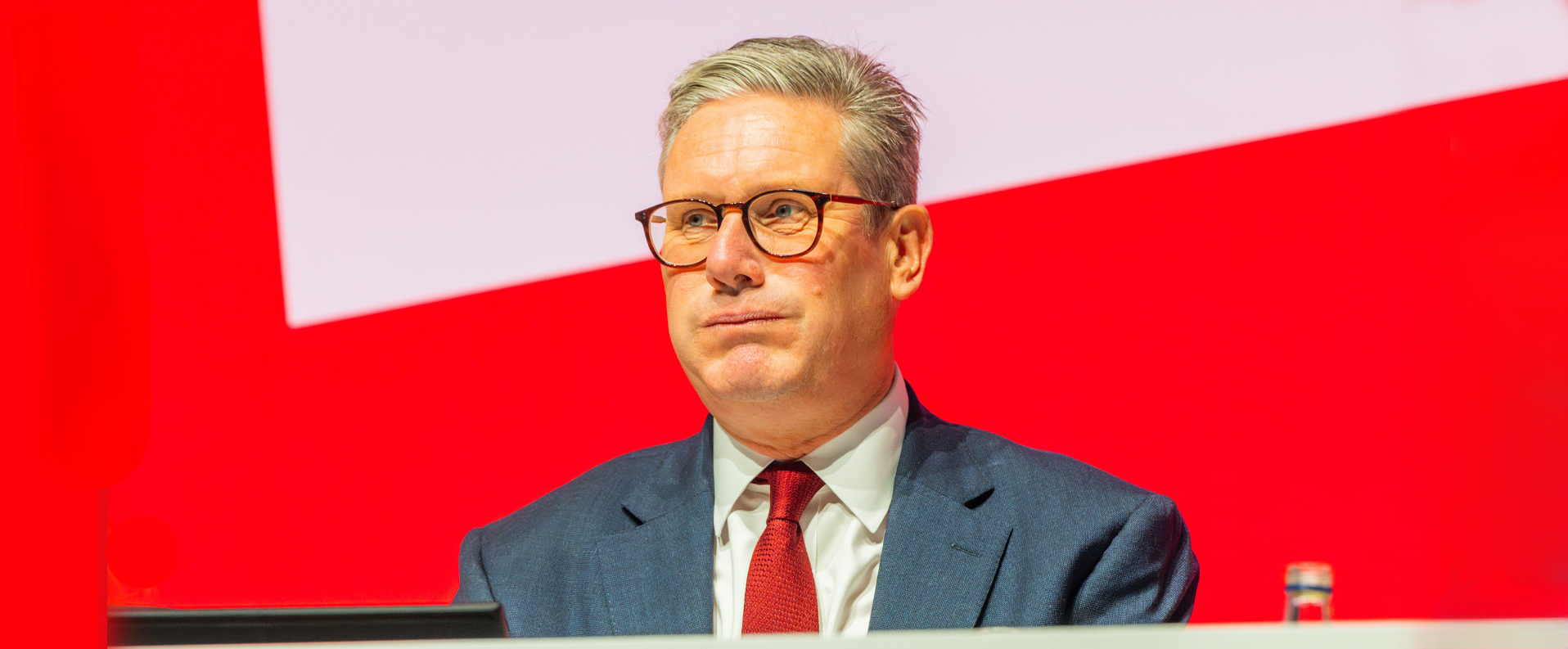
Serialised in The Mail on Sunday on 13 February 2022.
Unseen photo from six years before they met speaks a thousand words as LORD ASHCROFT’s explosive biography charts her journey to Number 10.
- Tory sources baffled by aspects of Carrie Symonds’s 30th birthday party
- In particular the presence of senior Cabinet Ministers, including Boris Johnson
- Just weeks before event, Brandon Lewis had been appointed party chairman
As the sound of the hostess’s favourite band Abba belted out of the music system, the drink flowed and the guests danced until the small hours.
On the face of it, Carrie Symonds‘s 30th birthday party in the spring of 2018 was nothing out of the ordinary.
But looking back, several Conservative Party sources remain baffled by certain aspects of the event – in particular the presence of senior Cabinet Ministers, including Boris Johnson, Sajid Javid and Michael Gove.
‘It’s not normal for a young woman to have that many middle-aged male Cabinet Ministers at her 30th birthday,’ says one party source. ‘It’s weird.’
Carrie was seen dancing with the then Foreign Secretary Johnson, and the music was only switched off to make way for Gove, who drew attention to himself by performing a rap seemingly in praise of Johnson, who was said to have been ‘perplexed’ by the performance.
What most guests would not have known, however, was that even as Carrie marked her milestone birthday, questions were being asked about her position with the Conservative Party, where she held the prestigious post of director of communications.
Just weeks before the birthday event, Brandon Lewis had been appointed party chairman by Prime Minister Theresa May.
According to one source who worked at Conservative campaign headquarters (CCHQ): ‘Brandon was the new chairman and wanted to make an impact. Part of that involved changing lots of things, including looking at all departments and different people to see who was and wasn’t performing.’
The source recalls that Lewis was soon made aware of concerns about Carrie’s work ethic. ‘A lot of people hadn’t been happy about her behaviour for quite a long time,’ they say.
‘She just wasn’t up to the job. She was never in the office at CCHQ. She was missing in action all the time.’
One source remembers: ‘Zac [Lord Goldsmith, a friend of Carrie] and Sajid [Javid] contacted Brandon Lewis and asked him not to get rid of Carrie. They lobbied for her to stay.’
But Lewis alone was not involved in deciding her future. Sir Mick Davis, the Tory Party’s chief executive, was a prime mover.
Insiders say that Sir Mick ran his section like a business. He was in charge of spending and salaries and, like any good businessman, he wanted to be sure that the party was getting value for money.
He was aware of two principal areas of concern. The first was Carrie’s commitment to her job as director of communications. The second related to the amount of expenditure she had incurred in taxi journeys that had been charged to CCHQ.
Under a long-standing arrangement, CCHQ had an account with a minicab firm. Taxis could be booked by staff using a password. The name of whoever made the booking would be logged by the firm.
It transpired that some journeys had been booked by Carrie for use in her private time. Not only that, but these bookings had been made using the names of junior members of staff without their knowledge, to disguise the fact that they were for Carrie.
A certain amount of detective work was required to establish this. ‘Someone looked at the figures and said, ‘Why is so-and-so spending all this cash on taxis?’ ‘ says a source. During the inquest into the bills, the name of one junior press officer, Harriet Smith, cropped up on the booking requests more often than any other.
Miss Smith, who is described as ‘very sweet and rather shy, but the most hard-working press officer in CCHQ at the time’, is the god-daughter of two well-known Tory Party figures: the ex-MP and now newspaper columnist Matthew Parris, and Patrick (now Lord) McLoughlin, who was party chairman during some of the time that the taxi bills were run up.
Sources who worked in CCHQ at the time say it is highly relevant to point out that nobody there knew that Carrie had recently struck up a relationship with Boris Johnson when these matters were tackled in the first half of 2018.
‘Issues had been cropping up for a long time,’ says once source. ‘No one had any idea she was seeing Boris at the time. Those rumours started months after.
‘So it wasn’t a political decision [to challenge Carrie], which maybe she felt it was. It was purely down to performance and expenditure.
‘In any job, if you’re not performing, you can’t expect to stay. If someone stops showing up to the office regularly, you can only defend that behaviour for a certain period of time. She didn’t appear to be enjoying the job. She lived in places like Annabel’s and 5 Hertford Street [private members’ clubs in London].’
On the other hand, her ex-boss John Whittingdale MP says: ‘She was incredibly helpful in terms of keeping me informed and advising me on what was happening around government. She had a very good feel for the press.’
Carrie’s habit of peppering her social-media accounts with bulletins of where in the world she was at any given time had, seemingly, begun to catch up with her. It’s said in the past decade, she notched up at least 40 work or leisure trips abroad and in Britain.
In the first six months of 2014, for example, she made visits with friends and colleagues to Dublin, Morocco, the Cotswolds, Spain, Vienna and Moldova.
‘There were quite a few times when I wondered where she was and I was just told she was ‘off’,’ recalls one former colleague who worked alongside her at the Department for Culture, Media and Sport.
‘She didn’t seem to come in very often and when I asked after her, I was told that she had a headache or was on holiday.’
Other work or holiday destinations over the years included Venice, St Tropez, Rome, the Cayman Islands, Portugal, Mustique, Sri Lanka, Lebanon, Croatia, Vienna, Barbados, Greece, Tuscany, Germany, Paris and New York.
Even some Conservative MPs commented on the frequency with which she seemed to be away.
‘Delighted you’ve made it to another country for a rare change,’ wrote Paul Scully jokingly after she posted a photograph on Instagram of a beautiful Greek beach. ‘You need to get away a bit more, Carrie,’ added Nigel Adams.
‘The absence issue was quite something,’ says another source. ‘We all got the same amount of annual leave – 25 days – and her social media was looked at.
‘It was very clear that she was off more than she should have been. And she was earning a decent salary. It was about £80,000. That was very good for someone of her age and experience, which was limited actually to CCHQ and some spad [special adviser] jobs. She had very little employment experience outside Westminster.’
The source adds: ‘Sir Mick soon realised her appointment had been an error, and she was the wrong choice.’
Due to the fact that a non-disclosure agreement was eventually signed between Carrie and CCHQ, it is unclear precisely when and why the situation exploded, but it did. That Carrie is said to have spent thousands of pounds on taxis using other people’s names cannot have helped matters.
Some of Carrie’s former colleagues remain deeply unimpressed by the taxi episode to this day.
One says: ‘She’s lucky she didn’t end up in more serious trouble. I think it’s only because of where she worked that nobody wanted to draw more attention to it. It was misuse of CCHQ funds. She used the names of those just starting out on their careers. That was unforgivable.’
Not a word was leaked to the press at the time about her being forced to quit. Shortly afterwards she took up a post with Oceana, a charity that protects and restores oceans.
Carrie’s friends insist that her departure from CCHQ was not linked to the expenses row and the claim has previously been denied.
[A spokesman for her told The Mail on Sunday: ‘These regurgitated lies regarding Mrs Johnson’s employment record are spiteful and damaging. Carrie left her role to pursue her passion in ocean conservation and later in animal welfare.’]
Separately, after her affair with Johnson was exposed, The Times quoted an unnamed source as saying: ‘She was one of these girls who would be at all the parties. I can’t remember her doing any work that was really good but she was always at every party going.
‘The Tories love a social gathering and there were always a lot of parties for her to be at. The rest of us always wondered how she could afford all the dresses and designer handbags and the going out, on her kind of salary. Her friends were all beautiful. It looked like an episode of Love Island.’
Among Carrie Johnson’s talents, according to a previous boyfriend, is her ability to shed tears on demand – one of acting’s most notoriously difficult skills.
Indeed, so adept and able is the Prime Minister’s wife when it comes to the dramatic arts that as a schoolgirl she even considered a movie career.
In her final, A-level, year at her fee-paying school in Hammersmith, West London, she auditioned for the film Atonement – one of hundreds of girls to try for the role of the younger sister of the central character, played by Keira Knightley.
Oliver Haiste, who began dating Carrie the following year, says she ‘made the last few’ candidates for the role and was ‘quite disappointed’ not to get it and ‘didn’t go for other parts after that’.
He added: ‘I think her mother would have been keen on her becoming an actress.’
Carrie had every reason to feel disheartened. Not only was Atonement a major success, but the girl who got the part, Saoirse Ronan, was nominated for an Oscar as Best Supporting Actress.
However, this setback didn’t spell the end of Carrie’s interest in drama. After passing her A-levels – A grades in English literature, drama and history of art – she accepted a place at Warwick University to read theatre studies.
Carrie soon got into the swing of campus life, say her contemporaries, becoming a well-known fixture on the social scene.
At a fancy-dress party she captured attention in a short skirt and tying her long hair into pigtails to achieve the look of the American singer Britney Spears, who had starred in a music video dressed as a schoolgirl a few years previously.
‘We had a big mixed group of friends,’ remembers Haiste, who was Carrie’s boyfriend for much of her time at university. ‘It was quite a social relationship. Carrie and I got on quite well because we’re both vegetarians.
‘She had a Norfolk terrier called Milly-Molly-Mandy. She was in the lacrosse team at university and they had a very active social life. There was a very lively atmosphere. She seemed to be quite in the heart of the social life there.’
Haiste can also recall watching his then girlfriend perform on stage at Warwick. ‘She was a good actress,’ he says.
She appeared in a production based on the work of Aleister Crowley, a writer fascinated by the occult. Photographs show Carrie wearing a black dress and torn black tights. Heavy black make-up is smeared around her eyes.
The production included the graphic lines: ‘Straddle your Beast, My Masterful Bitch… Spit on me, scarlet, Mouth of my harlot… Soak me in cognac, c*** and cocaine.’ A bottle of cognac and small pile of white powder, believed to represent cocaine or heroin, can be seen on a table.
Towards the end of her time at university, Carrie celebrated her 21st birthday at a restaurant in Leamington Spa with her mother and a small group of friends.
Her flatmate, Frances Charles, gave a speech in which she praised Carrie.
‘You’re just that little bit more fabulous than everybody else,’ Miss Charles said, speaking from the heart. ‘Things are never mundane with you. They are exciting, they can be very frustrating, but they are never ever dull.’
By way of illustration, she told a vignette of how Carrie’s idea of supermarket shopping for household ‘essentials’ had recently involved her buying ‘300 ice lollies and six bottles of £80 champagne’.
If nothing else, this showed that even as a student, Carrie’s attitude to money was considerably more relaxed than her flatmate’s.
Haiste agrees with Miss Charles’s analysis that life with Carrie was never dull.
‘It was quite standard for her to lose her temper,’ he says. ‘Massively so. She lost her temper plenty of times with me. Sometimes I had to leave the house.’
Haiste says it would not be proper for him to expand further, but he admits the problems they went through as a couple ranged from being rather trivial to, on occasion, having more serious consequences.
‘I remember when we went to Kenya she cried because her hair straighteners didn’t work. And she had a big strop in Paris once because I wasn’t enjoying myself.’
He goes on to say that her anger occasionally spilled over into outright volatility and acknowledges that it would be fair to describe Carrie as a ‘livewire’.
Despite these intermittent rough patches, he speaks fondly of his former girlfriend and says that when things were on an even keel, the relationship worked well.
They travelled widely and had a mutual love of films, especially psychological thrillers. ‘There was a lot of passion, a lot of affection, a lot of shared tastes,’ he says.
‘She was very fun, engaging, affectionate, exciting. It was never a lazy relationship. She was thoughtful.’
Haiste adds that he was not the only person with whom Carrie had tiffs. Another involved a ‘big falling-out’ with a school friend. ‘They just stopped talking. I’m not sure of the specifics. What you’ll find with Carrie is a lot of burnt bridges along the way,’ he says.
‘You’ll notice a lot of intense friendships that peter out very quickly. That’s the pattern, in my view. Difficult people quite often bring with them quite a lot of charisma, which is why they’re enticing and exciting to be with. Undoubtedly she was a difficult person. I don’t think anyone would deny that. She’d probably admit that herself.’
Although described by one of her teachers as ‘a good, hard-working, sensible little girl,’ Carrie had shown examples of exuberance in her early years which would foreshadow her party-loving adulthood, her friends recall.
One Christmas Day, when she was 12 or 13, was spent at the London home of Florence Lawes, whom she describes as her oldest friend.
After Christmas lunch, the two girls disappeared to a nearby churchyard to drink bottles of an alcopop called WKD. On the way back to Florence’s house, no doubt spurred on by a small amount of liquor, they indulged in high jinks with passers-by on their way home, according to her university flatmate Frances Charles.
In the summer of 2009, after getting a first-class degree in theatre studies and history of art, and showing the kind of ambition for which she has become well known, Carrie did not rest on her laurels.
Just a few weeks after graduating, she secured her first job in London, as an account executive for a communications company before moving to rival PR firm Lansons shortly afterwards. ‘She’s got a huge personality,’ says Tony Langham, the company’s co-founder. ‘She was good at her job. She stood out.’
Carrie’s move towards creating and controlling messages had begun. As the debate about her level of influence at the heart of Government rages, only time will tell where that story will end.



